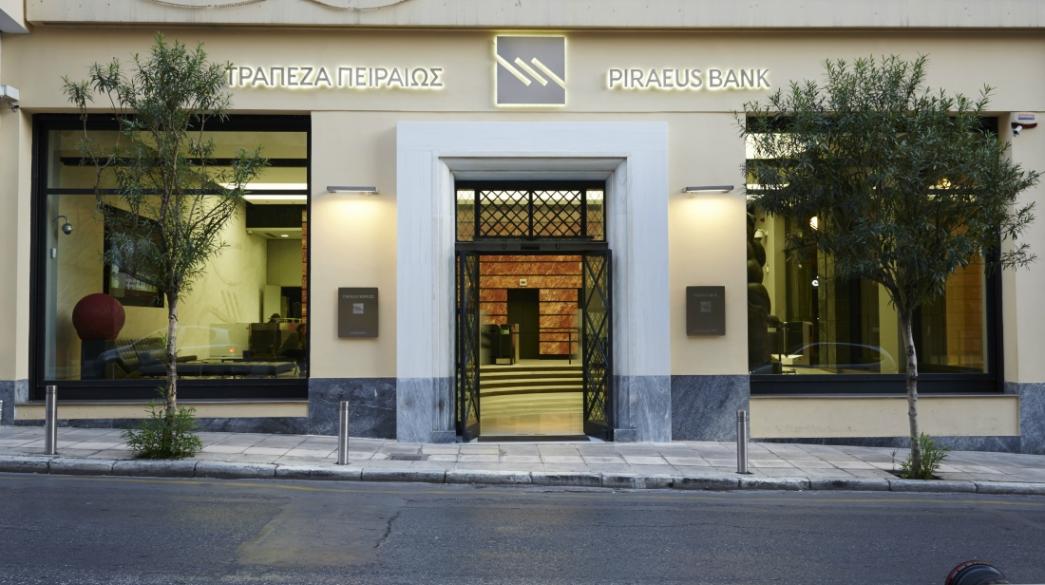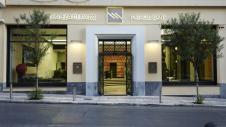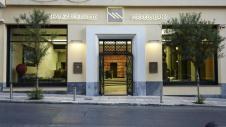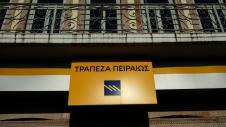Things are heating up for Piraeus Bank as talks get underway between the management - shareholders - supervisory authorities and the government to decide on the lender’s share capital increase.
Developments seem to be accelerating after a group of shareholders announced their proposal for a share capital hike at the bank, accompanied by a series of terms and conditions that make its implementation difficult. Late yesterday afternoon, Piraeus, with its share ending the session down 24.26%, announced that it has no intention to proceed with a capital hike in the near future.
Sources indicate that the most probable scenario for the next day at the bank is the conversion of 2 billion euros of contingent convertible debt (CoCos) issued during the 2015 recapitalization, into shares, which will lead to an increase in the HFSF’s participation stake from 26.3% currently to 61.3%.
It is noted that according to the contract on CoCos, they can be converting into shares in one of 3 cases:
1. If the core capital ratio (CET1) falls below the 7% threshold.
2. If the bank does not repay two of the provided coupons.
3. If it cannot repay the total value of CoCos in 2022.
Officially, Piraeus Bank has not changed its plan to pay the CoCo's coupon next December, amounting to 165 million euros. However, there are strong indications that the supervisory authority does not favor repayment, considering that the priority is to strengthen the bank's capital and accelerate its balance sheet consolidation effort. According to sources, the SSM considers that the coupon cannot be repaid due to the relevant ban imposed by the supervisory authority, which prohibits banks from distributing dividends, repaying capital or buying own shares, for as long as the banks are receiving support to deal with the pandemic.
Based on current data, there are some estimates that due to the large capital amounts needed by Piraeus Bank to consolidate its balance sheet, it is impossible to pay the three coupons (2020-2022) totaling 495 million euros and the 2 billion euros of CoCo's.
In any case, if SSM does not accept the repayment of 165 million euros next December, then it will be the second non-payment of a coupon activating the conversion of CoCo's into shares. This will not only solve the CoCos issue, which is a source of uncertainty for the bank, but will save the lender an additional 500 million from the non-payment of coupons.
The administration of Piraeus Bank has submitted proposals for the postponement of the repayment of CoCos, or its replacement with other tools, proposals that have not been accepted, in line with the HFSF’s position. Thus, Piraeus Bank is very likely to pass to state control and in the second year the government will consider selling its stake to individuals.
Problems with share capital hike
The proposal for a capital increase of 500 million to 800 million euros faces many technical difficulties as it seems to be accompanied by terms and conditions that are unlikely to be given by authorities.
According to some sources, the proposal for the capital increase, put forth by John Paulson, who controls 9.3% of Piraeus Bank, and Aristotle Mystakidis, who has a stake of more than 5%, assumes that the CoCos have either been converted into shares before the capital increase, or replaced with another financial instrument.
In other words, the investors are asking that the state strengthen the bank with 2 billion euros and regain control with the fresh capital injection - a proposal that was promptly rejected.
While Piraeus Bank initially answered the relevant issue in a vague manner, it came back with a stronger response in the afternoon saying that there is no possibility of a capital increase taking place in the near future.
The conversion of CoCos into shares is a positive development for Piraeus Bank, as it will strengthen it at a very difficult time for the banking system by 2 billion euros. On the other hand, shareholders will see their stake being diluted as the new shares will be issued for the conversion of CoCos which will pass to the HFSF.
However, the change for existing shareholders will not be sweeping, but mild, and the reason is that the issue price of the new shares will be at 6 euros, ie the price at which the capital increase took place in 2015. Despite the fact that 2 billion euros will be pumped into the bank, five times its current market value, the percentage of existing shares (excluding HFSF) will fall from 73.7% today to 38.7%.
The price of 6 euros is provided in the terms of the CoCos conversion, however, the government is concerned about the deal as it will be an unusual transaction: the HFSF will acquire shares of Piraeus Bank at a price of 6 euros per share but the current stock price is at just above 1 euro. There is concern that the capital hike at 6 euros per share will be opposed and draw criticism.
In any case, the payment of the coupon or conversion of CoCos into shares does not concern the bank, and much more the bank's customers, but only the shareholders and who will control the Board of Directors.
However, if the HFSF's stake rises to 61%, then the bank will be subject to the stricter restrictions regarding bank resolution directives.
Merger scenarios
Scenarios that have been floated around recently, on the occasion of CoCos, include the merger of Piraeus Bank with another systemic bank. However, this seem unlikely for at least another 2-3 years.
Neither the government nor the supervisor favors the further concentration of the industry, as today the 4 systemic banks control 95% of the banking market, while Greece’s official sector creditors have repeatedly rejected such proposals.
YIANNIS PAPADOGIANNIS







